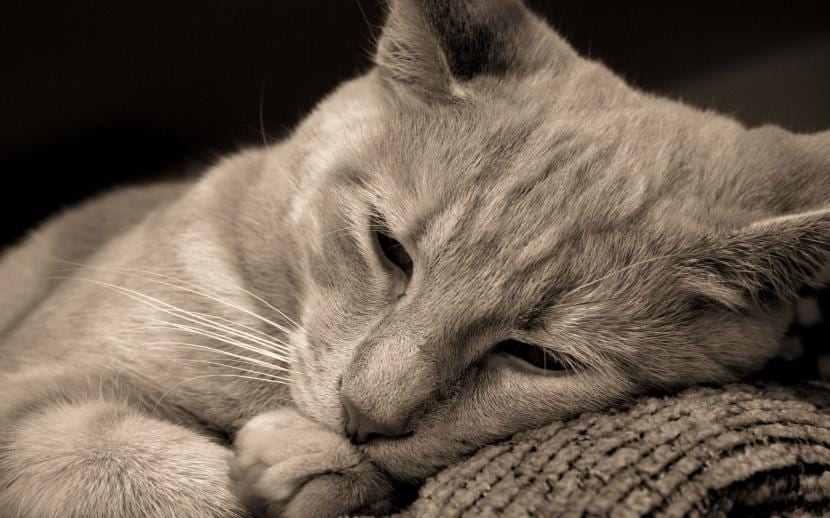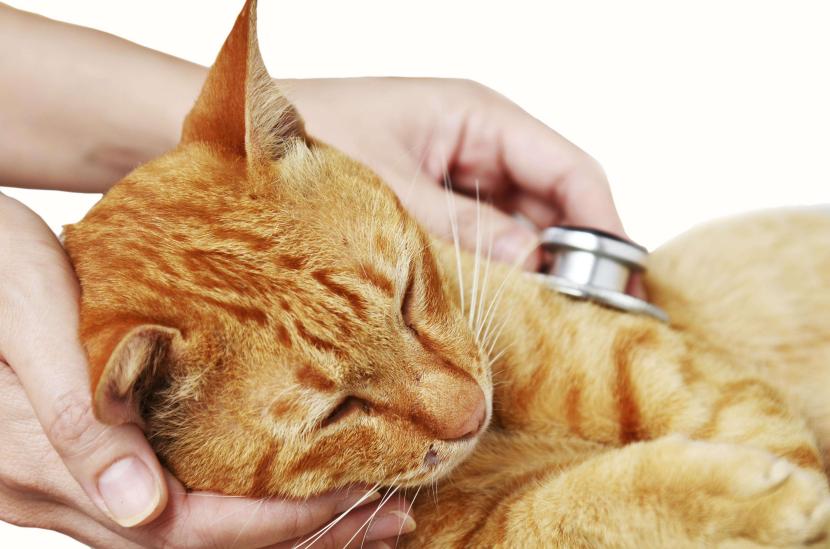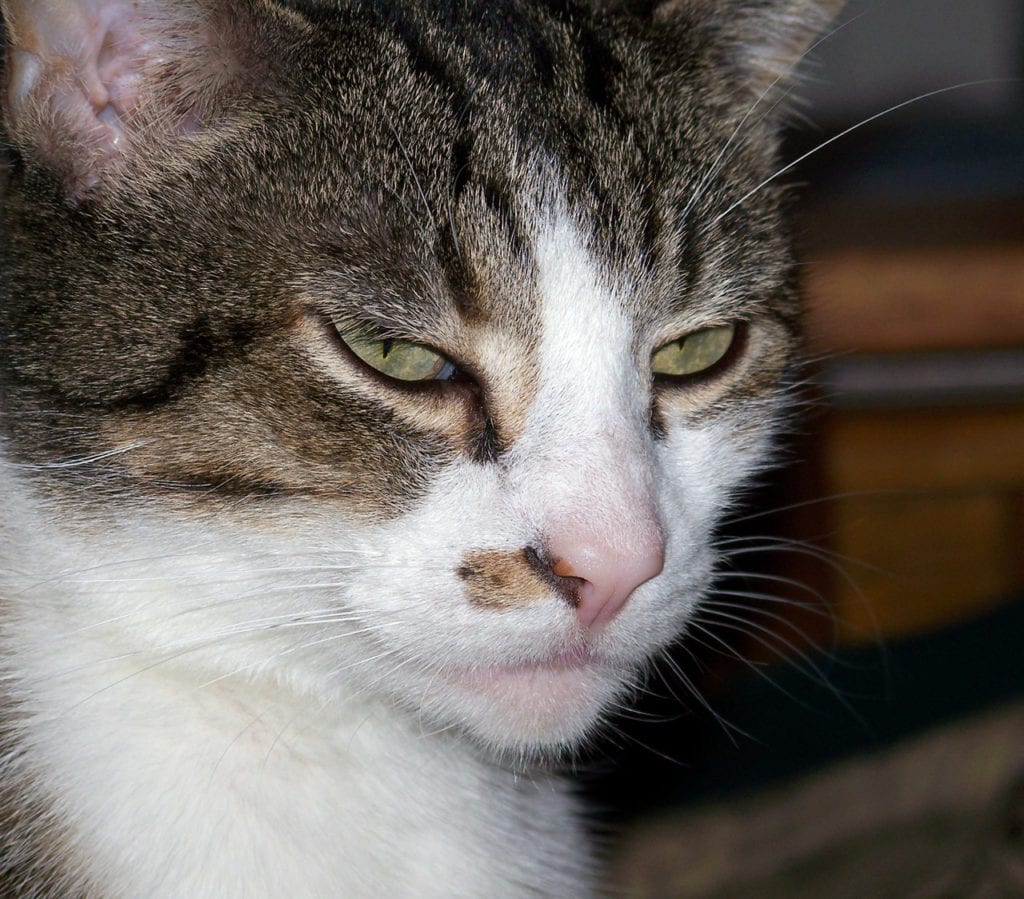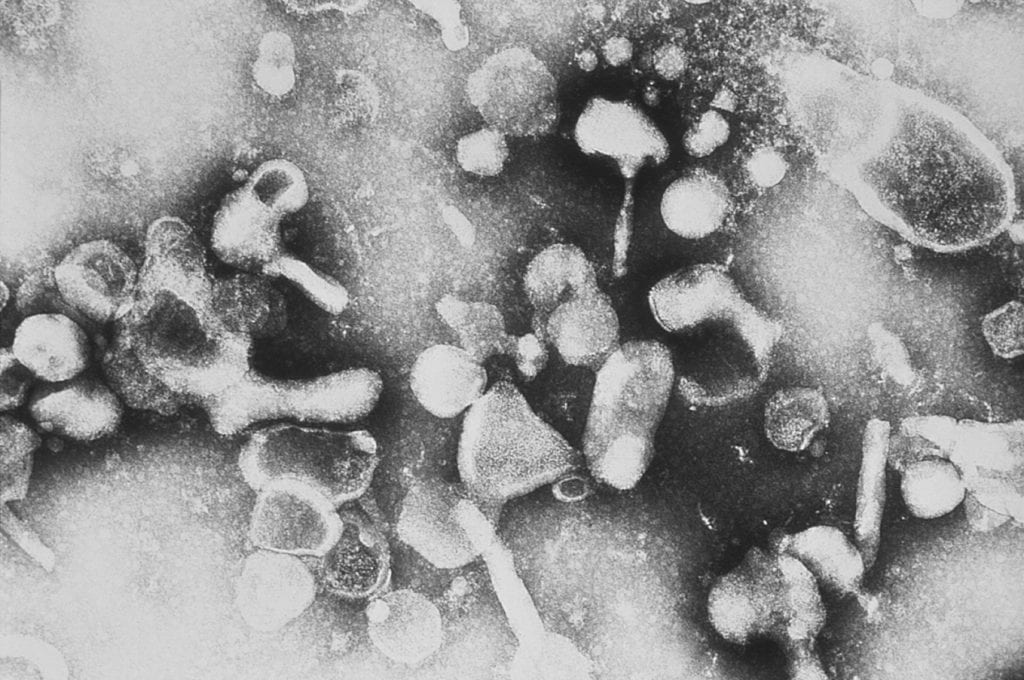
La feline leukemia It is one of the most common diseases that cats can suffer from, as well as one of the most serious. Fortunately, their prevention is almost total with a vaccine and some basic care, but if it is not treated, the chances of developing cancer or other problems are high.
Discover how to prevent your furry from getting sick, and / or what you have to do so that, in case of infection, they have a good quality of life.
What is feline leukemia?
Cat leukemia is a disease transmitted by the retrovirus known by the acronym FeLV. It is a microorganism that can be found anywhere in the world, but don't worry: this does not mean that all cats will be sick; in fact, and as we anticipated, it is easy to prevent it if some measures are taken.
How is it transmitted?
The form of transmission occurs when a healthy cat comes into contact with the fluids of an infected one. Also, if a cat is infected, she can transmit the virus to her kittens during the gestation period and later through milk.
Once it reaches the body, it penetrates the nucleus of the cells and mixes with their genetic material. Then it begins to multiply. During this initial phase, if the immune system is strong it can fight it without problems, to the point that they may not have symptoms; otherwise, the disease will continue to advance.
Is it contagious to humans?
No. Feline leukemia is only contagious between cats. Especially vulnerable are street people, those who go abroad and those who are not vaccinated. I would even tell you that those that are not neutered too, since especially male cats in mating season usually fight with other cats, and the virus is a microorganism that also enters through bites and scratches. Furry animals that have had their reproductive glands removed are generally much calmer since they need to mate and therefore not fight for that reason either.
What are the symptoms of feline leukemia?

Although they may be lucky and, even if they have had contact with the virus, have no symptoms, sometimes they are not lucky.. Cats with a weak immune system, such as puppies or elderly cats, are one of the groups of felines that are most likely to worsen after infection.
Another group is the one that eliminates the virus through urine or saliva, but remains latent in some organ; that is, these furry ones become carriers and do not have to have symptoms. The virus can be reactivated, or it can be completely eliminated after a while.
And finally, there are those who are infected for life. They will need treatments to control the leukemia virus, but also those of other diseases that will develop as a result of FeLV.
But What are the symptoms? It depends a lot on the state of each cat, but in general the most common are:
- Loss of appetite
- Weight loss
- Fever
- Anemia
- Lethargy
- Decreased coat shine
- Swollen lymph nodes
- Gastrointestinal diseases
- Cancer
How is it diagnosed?
Since the symptoms of feline leukemia coincide with those of other diseases, and since there are cats that do not show signs for years, the diagnosis is difficult. So, what veterinarians use the most is the ELISA test, or enzyme-linked immunosorbent test, which is done through a blood sample.
Sometimes they may need to do other tests, like biopsies for example.
What is the treatment for feline leukemia?

This is a disease that has no cure, but the professional will administer antibiotics to control the virus, and consequently, also the symptoms. In case the sick cat has cancer, he might recommend chemotherapy.
Still, the best we can do is prevent.
How to prevent?
Vaccine
The normal thing is that it is administered as a kitten, at 2 months or 2 and a half months, then a month later and thereafter annually. But be careful: it is highly recommended that before putting it on you ask to do the test, especially if you have other cats at home and / or you suspect that they may have had contact with someone who is sick.
Indoor life
If the cat does not leave the house, it will run a minimal (if not zero) risk of becoming infected in the event that it is the only feline in the house. Although all precautions are little: make sure you keep the doors and windows closed, and "just in case" get him used to wearing a necklace with an identification tag from a very young age. Of course, you don't have to forget to put the microchip on it either.
Castration
Neutering (not spaying) is an operation in which your reproductive glands are removed. With this, it is possible to eliminate jealousy, the behaviors associated with it (such as fights) and, also, the possibility of procreating. The life of these cats is much calmer, and safer if we talk about contagious viruses.
What is the life expectancy of cats with leukemia?

Much will depend on the strength of each cat and what their human family has done to avoid contagion. If things are done right, cats will live as long (years) as they have to live 🙂; On the contrary, if they have a weak immune system, are not vaccinated and apart from going out into the streets whole (that is, not neutered), they can lose the battle in a matter of months.
If you suspect your friend is sick, take him to the vet as soon as possible. Your future will depend a lot on an early diagnosis.
